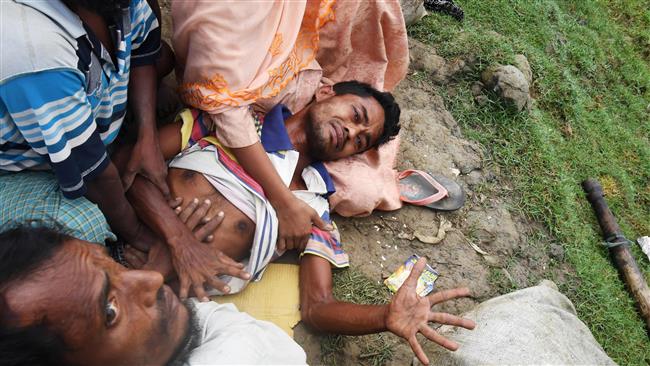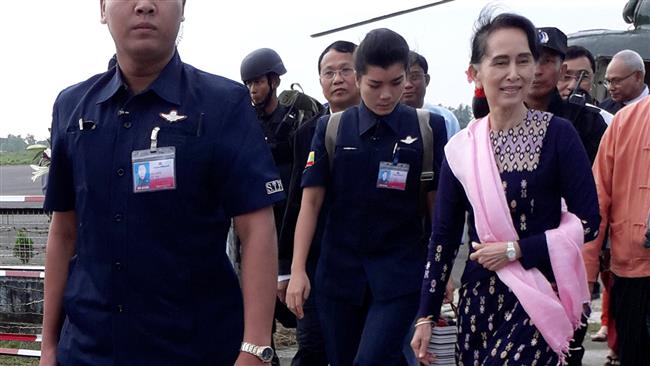Over half a million Rohingya Muslims must return to Myanmar's Rakhine as citizens: UN
The head of the Office of the United Nations High Commissioner for Refugees (UNHCR) says Myanmar must grant citizenship to hundreds of thousands of Rohingya Muslims so that they can return to the Southeast Asian country, where they fled government-run violence against the persecuted minority group.
“These people cannot remain stateless because this statelessness exposes them to discrimination and abuse, as has been the case in the past,” said Filippo Grandi at a press conference after addressing the UN Security Council on Thursday.
More than 600,000 Rohingya Muslims have so far fled the predominantly-Buddhist Myanmar to neighboring Bangladesh since August 25, when the crackdown on the Rohingya intensified in Rakhine state.
The massive exodus of distressed Muslims in Rakhine has also altered the demographic status of the state, where the military and Buddhist mobs have since last year been attacking Muslim Rohingya civilians.
Many of those who have fled have recounted harrowing accounts of rape, murder, and arson at the hands of Myanmar’s forces and Buddhist mobs, in what has been branded “an ethnic cleansing campaign” against the Muslim minority group.
Estimates as to how many Muslims have been killed vary from 1,000 to 3,000.
“For people to go back and for this return to be sustainable, you need to address the very complex issue of citizenship,” Grandi told reporters during the presser, adding, “No return will be sustainable ... if that issue is not unblocked.”

Meanwhile, Myanmar’s de facto leader, Aung San Suu Kyi, arrived in Rakhine’s provincial capital of Sittwe, long after the government-sanctioned violence triggered the huge exodus. She has long been under fire by the international community for initially being silent on the violence and then defending the military’s handling of the situation.
It was also not clear what her visit would entail, and whether the situation would in any way improve.
This is Suu Kyi’s first trip to Rakhine since she assumed power in April last year following a landslide 2015 election victory. The majority of the residents in the northern parts of the state — some 1.5 million — were Muslims until the recent crisis.
At the root of the crisis is Myanmar’s refusal to grant citizenship to the Muslim minority community. The government says the Rohingya should go to Bangladesh where they are originally from, while Bangladesh says that they are Myanmarese and that Dhaka accepts Rohingya refugees only on humanitarian grounds.
Dec. 22: ‘Axis of Resistance’ operations against Israeli occupation
‘Abhorrent’: Oxfam says only 12 trucks delivered aid in North Gaza since Oct.
VIDEO | Leader receives religious eulogists on Hazrat Fatima birth anniv.
Pope Francis slams Israel’s ‘machine-gunning’ of Gaza children
US hostage-taking of Iranian nationals violation of intl. law: Deputy FM
VIDEO | Carol Singers for Palestine on London’s Parliament Square
Ansarullah says ‘Israeli terrorists’ incapable of confronting Yemen, warns of secret weapons
VIDEO | Yemenis praise the military for its successful operations against Israel













 This makes it easy to access the Press TV website
This makes it easy to access the Press TV website